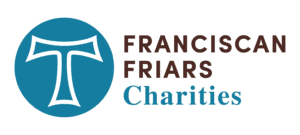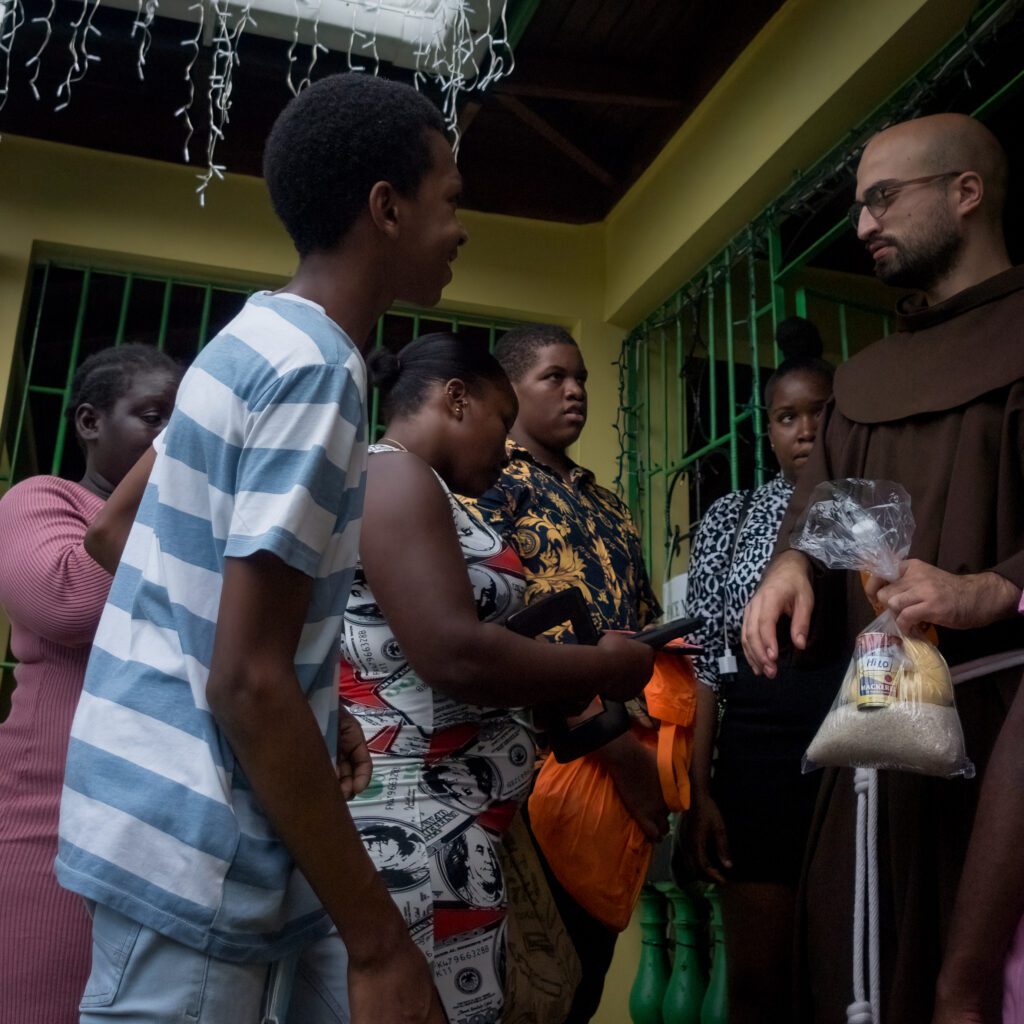
Fr. Mike Johnson, OFM, knows what it’s like to break out of his comfort zone. He spent five years as chaplain in a Bolivian maximum-security prison, something he now recalls as the best five years of his ministry.
The rewards of moving out of comfort zones is a lesson he teaches as director of the Brothers Walking Together program. Over the past six years, with the exception of time sidelined due to Covid, young friars in formation have ministered on the island of Jamaica, the U.S.-Mexico border, and some of the roughest parts of Philadelphia and San Francisco, connecting with the real-life experiences of the poor.
Through the use of devices such as the Enneagram, an ancient spiritual/psychological typing system which charts people’s motives and perspectives, Fr. Mike challenges the friars to reflect upon what internal barriers might hold back their ministry to the poor, whether they be school children in an impoverished Jamaica school or the addicted who live on the streets of
San Francisco’s Tenderloin District.
In Franciscan terms, moving out of a comfort zone can involve answering a simple question: “Who is the leper you need to embrace?”
It’s a challenge accepted by the young friars in formation, and for many it’s been a life-transforming experience. They serve in one-year stints, challenged by the people they encounter and the friars they live with.
Brothers Walking Together, said Fr. Mike, is a way for young friars to discover how so many people in the world “live in ways much simpler than ours.” Sometimes frustration abounds. For example, friars engage in tutoring youngsters in Jamaica, many of whom have fallen behind their grade levels due to Covid closures. When a student emerges from tutoring with an ability to read at the level of his classmates, there is a sense of accomplishment.
Brothers Walking Together allows friars in formation to break out from the bubble of Franciscan preparation largely spent in classes and in retreat with other friars.
“It’s a valuable long-term lesson,” said Fr. Mike. “You will have to deal with people with challenges throughout your friar life,” he adds, noting it is a lesson that the friars in Brothers Walking Together learn, whether it is preparing meals at a soup kitchen or hearing the struggles of parishioners in a Jamaica parish which alternates between posh resorts and extreme poverty in the countryside.
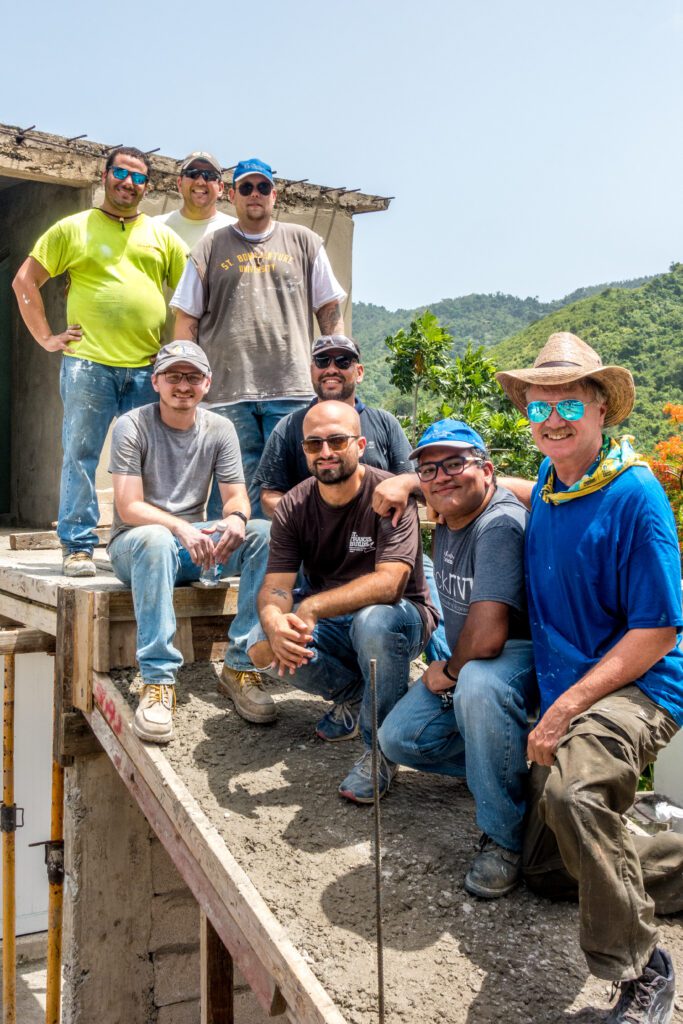
Fr. Mike, now based in Hartford, Connecticut, where he serves as a parochial vicar at a Franciscan parish and leads an urban ministry project, brings his own experience to Brothers Walking Together. He also ran a Franciscan mission project that has constructed scores of houses and church buildings from Peru to hurricane-ravaged New Orleans.
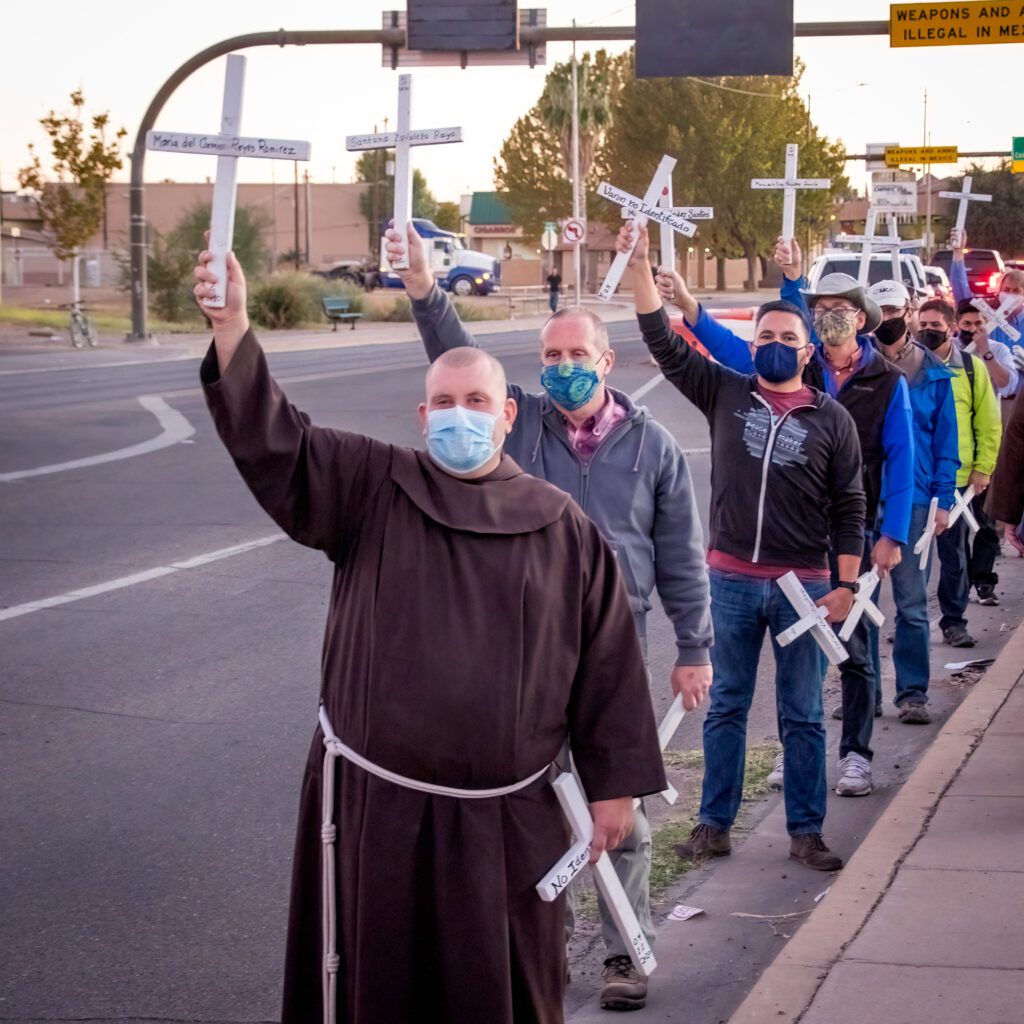
In Bolivia, he said, becoming a prison chaplain was not his initial desire. But he learned, praying every day that he could be guided by God, only to find at the end of most days that his prayer became a simple “Thank you, Jesus.”
“I never felt closer to God,” he said about his time in the Bolivian prison. “It was where God kept pushing me. It turned the chaplaincy into something more than prayer,” he said, noting that he was part of developing projects, including a shoemaker shop, a soccer ball manufacturing facility and experimental farms, that made for a model prison which transformed inmates.
“So many experienced conversion because they had a purpose,” he said about the inmates, many of whom previously spent their time with little to do other than participate in prison fights.
A similar kind of transformation happens to the friars who partake in Brothers Walking Together.
“Many develop a heart for the poor,” he said, noting that upon their return the friars experience a determination to make a change in the world. An artist friar created work focused on his experiences at the Mexico border, illustrating how inspired he was by the faith of migrants desperate for a new life. He teaches immigrants art. One friar returned to Siena College, determined to pursue a degree in environmental engineering to assist the poor dealing with exploitation of their environment.
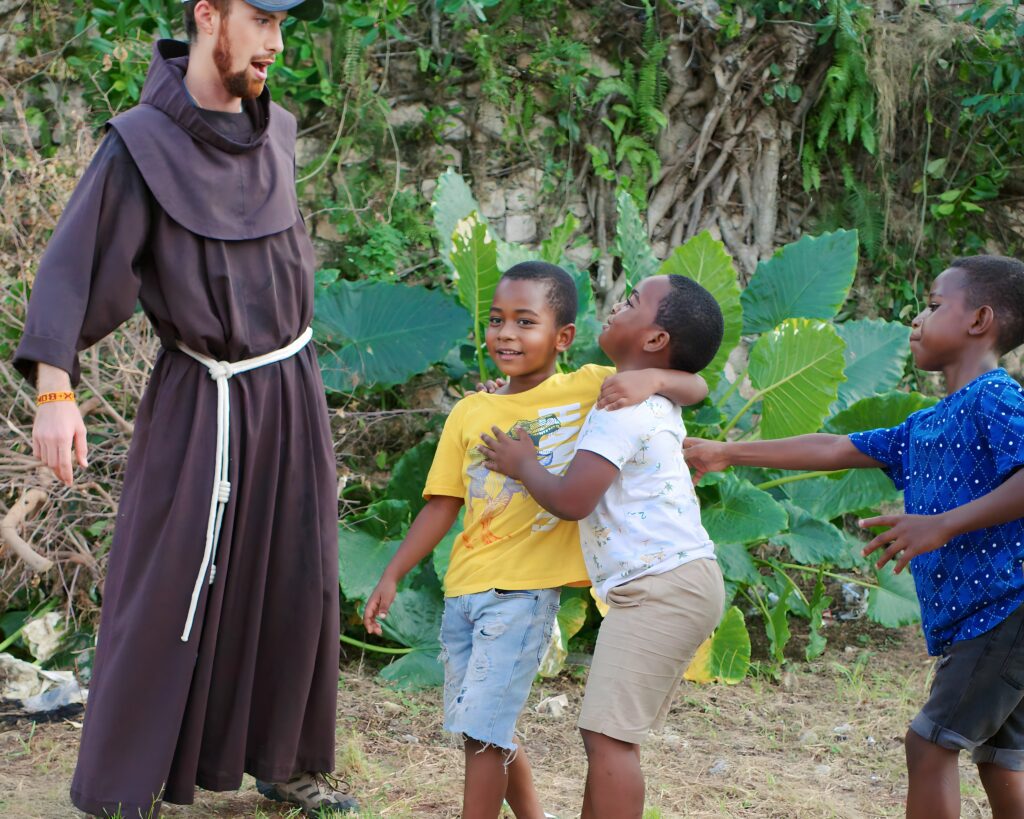
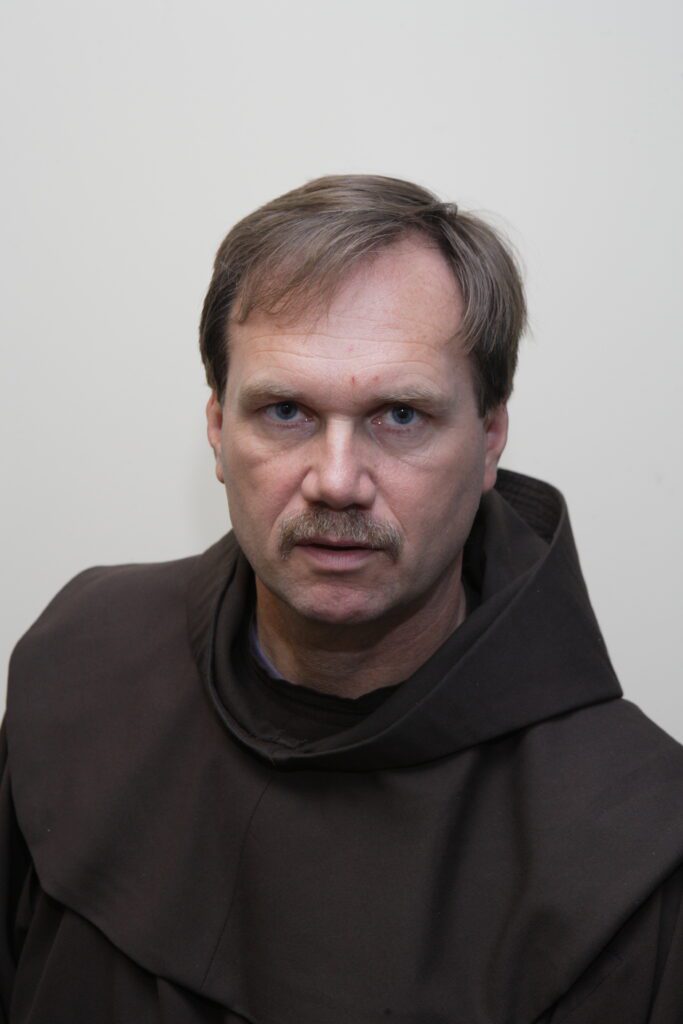
Another, after working closely with the street people of San Francisco’s Tenderloin, is studying addiction, and hopes to one day be a supportive counselor. Another is a teacher of English to immigrants in Silver Spring, Maryland.
Fr. Mike has found that friars who have returned from the experience have been open to letting it make an impact on their future. Many plan to be brothers and have found their experience with the poor a way to connect with their vocation of service.
“They will continue to make a difference in the world, to be a Franciscan in the world,” said Fr. Mike.

